-
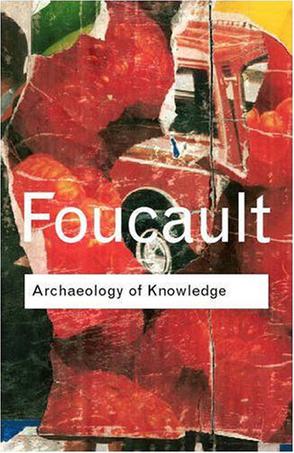
Archaeology of Knowledge
在线阅读本书 Foucault's classic methodological statement. -
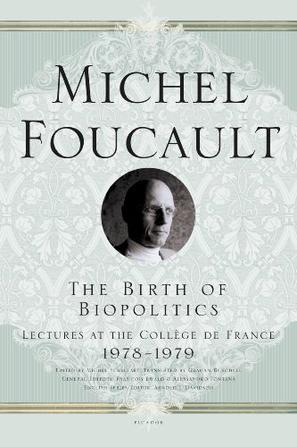
The Birth of Biopolitics
Picador is proud to publish the sixth volume in Foucault's prestigious, groundbreaking series of lectures at the College de France from 1970 to 1984 "The Birth of Biopolitics "continues to pursue the themes of Foucault's lectures from "Security, Territory, Population": having shown how eighteenth century political economy marks the birth of a new governmental rationality--seeking maximum effectiveness by governing less and in accordance with the naturalness of the phenomena to be governed--Michel Foucault undertakes a detailed analysis of the forms of this liberal governmentality. This book raises questions of political philosophy and social policy that are at the heart of current debates about the role and status of neo-liberalism in twentieth century politics. -
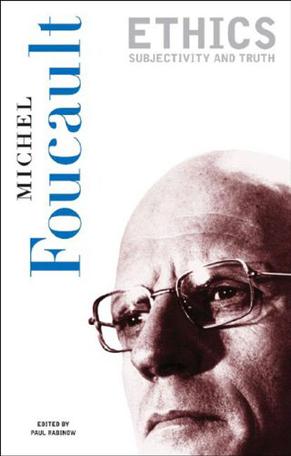
Ethics
The definitive edition of Foucault's articles, interviews, and seminars. . Few philosophers have had as strong an influence on the twentieth century as Michel Foucault. His work has affected the teaching of any number of disciplines and remains, twenty years after his death, critically important. This newly available edition is drawn from the complete collection of all of Foucault's courses, articles, and interviews, and brings his most important work to a new generation of readers. . Ethics (edited by Paul Rabinow) contains the summaries of Foucault's renowned courses at the Collège de France, paired with key writings and interviews on friendship, sexuality, and the care of the self and others. . Annotation The first volume of the series contains the famous course summaries which Foucault submitted to the College de France each year from 1970 to 1982. Never before available in English, these writings provide a lucid and accessible overview of Foucault's work in progress during this time, including his groundbreaking analyses of penal institutions, psychiatry, "bio-politics, " and the status of the modern subject. 320 pp. 15,000 print. -
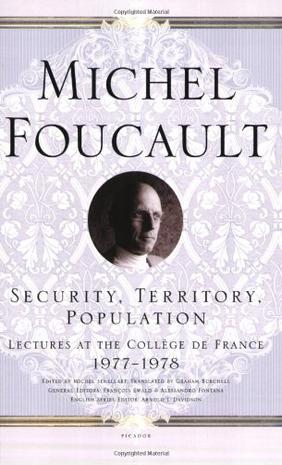
Security, Territory, Population
Marking a major development in Foucault's thinking, this book takes as its starting point the notion of "biopower," studying the foundations of this new technology of power over populations. Distrinct from punitive disciplinary systems, the mechanisms of power are here finely entwined with the technologies of security. In this volume, though, Foucault begins to turn his attention to the history of "governmentality," from the first centuries of the Christian era to the emergence of the modern nation state--shifting the center of gravity of the lectures from the question of biopower to that of government. In light of Foucault's later work, these lectures illustrate a radical turning point at which the transition to the problematic of the "government of self and others" would begin. -
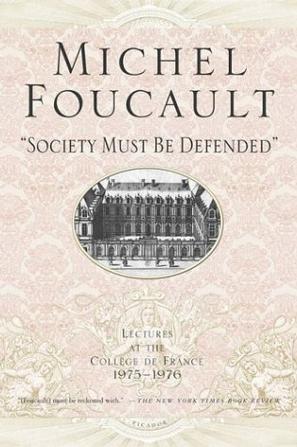
Society Must Be Defended
An examination of the relation between war and politics, by one of the twentieth century's most influential thinkers From 1971 until 1984 at the Collège de France, Michel Foucault gave a series of lectures ranging freely and conversationally over the range of his research. In Society Must Be Defended, Foucault deals with the emergence in the early seventeenth century of a new understanding of war as the permanent basis of all institutions of power, a hidden presence within society that could be deciphered by an historical analysis. Tracing this development, Foucault outlines the genealogy of power and knowledge that had become his dominant concern. -
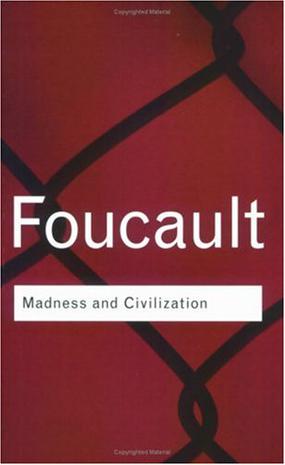
Madness and Civilization
'Time has proved Madness and Civilization by far the most penetrating work ever written on the history of madness (and, above all the history of reason).' - Roy Porter 'Michel Foucault's - Madness and Civilization has been, without a shadow of a doubt, the most original, influential, and controversial text in this field during the last forty years. It remains as challenging now as on first publication. Its insights have still not been fully appreciated and absorbed.' 'This is quite an exceptional book of very high calibre - brilliantly written, intellectually rigorous, and with a thesis that thoroughly shakes the assumptions of traditional psychiatry.' - R.D. Laing 'Michel Foucault's Madness and Civilization has been, without a shadow of a doubt, the most original, influential, and controversial text in this field during the last forty years. It remains as challenging now as on first publication.' - Roy Porter